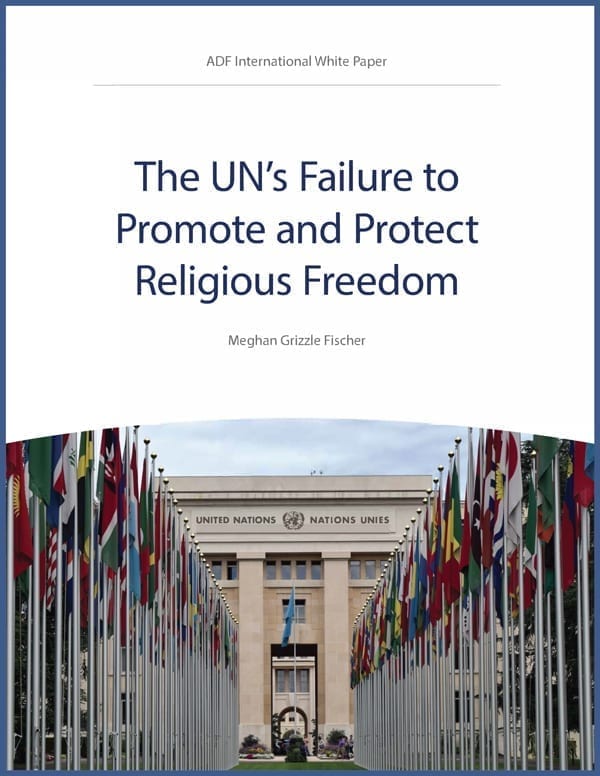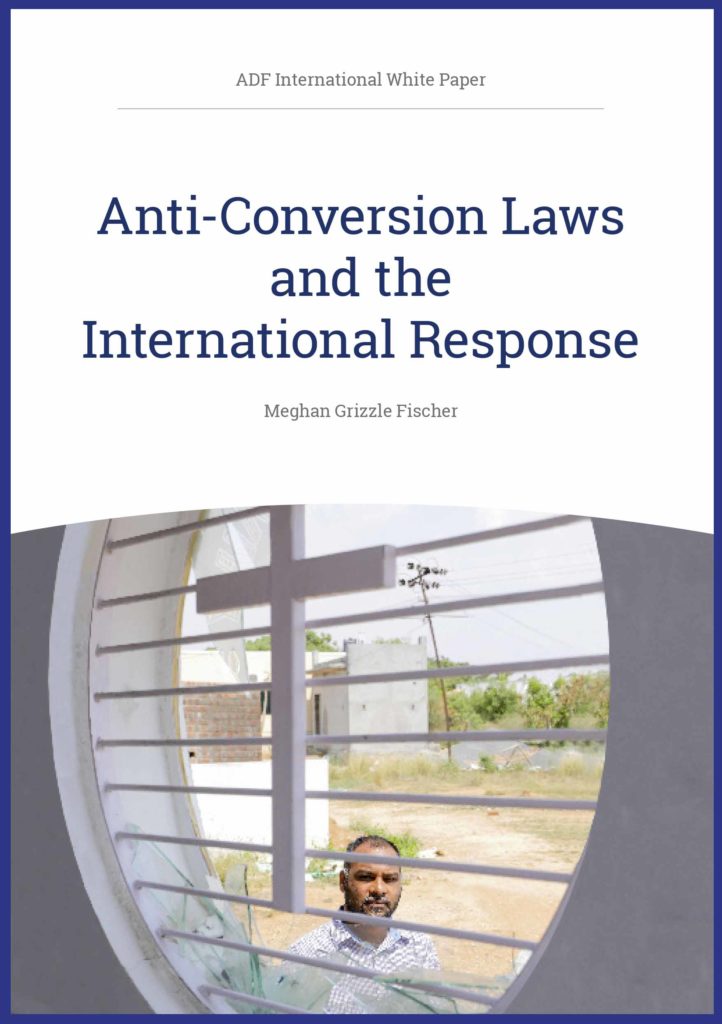Religious Freedom prevails
Restoring religious freedom as a fundamental right
Why is religious freedom so important?
Religious freedom is a fundamental, inalienable, and pre-political right that belongs to every person regardless of their religion or belief.
The freedom to have a relationship with God was established from the very beginning.
God created the heavens and the earth and all that is in them, including making humans alone in His image. This means that mankind is an inherently religious creature, which, in the image of God, possesses liberty, dignity, and moral responsibility.
Like Adam and Eve, we are called to freely choose God. As the Apostle Paul says in Galatians 5:1,
“For freedom Christ has set us free.”
Galatians 5:1
Jesus taught us that we should render unto Caesar the things that are Caesar’s and unto God the things that are God’s. The heart and soul of mankind belong to God, not to Caesar. Coercing or prohibiting belief constitutes a governmental invasion into the exclusive jurisdiction of God
In Acts, we see the apostles resisting efforts by governing authorities to coerce belief or limit the freedom to proclaim the Gospel. Because humans are free before God, the State, which God instituted, must protect and respect the freedom to worship and live according to one’s religious beliefs.
Christians are called to live out their faith publicly in speech, action, and worship.
Yet, pervasive censorship, attacks on conscience, and worship restrictions may have you believe that faith is a private matter and expressions of Christianity are harmful. This is false.
Freedom of religion or belief is a fundamental, universal human right. It is recognized in core international human rights treaties.
It protects every human person, regardless of his or her religion or belief or lack thereof. The State has no authority over the religion or beliefs of an individual’s choosing. This applies to everyone, and in no way should be impacted by the perceived validity of the beliefs. The significance given to religious freedom in law is a recognition that a person’s religion or belief, or lack thereof, is a fundamental part of who he or she is and how he or she lives.
Therefore, protection of religious freedom recognizes and preserves human dignity.
One of government’s primary tasks is to preserve the freedom of every person to follow their own convictions. And nobody should be punished for peacefully expressing their deeply-held beliefs.
As made clear in places of persecution across the world, a society cannot know peace as long as it violates the right to religious freedom.
What is the legal framework for the human right to religious freedom?
The right to freedom of religion or belief is clearly enshrined in international law, based upon the foundational assertion in Article 18 of the Universal Declaration of Human Rights that, “everyone has the right to freedom of thought, conscience and religion; this right includes freedom to change his religion or belief, and freedom, either alone or in community with others and in public or private, to manifest his religion or belief in teaching, practice, worship and observance.”
This was codified in international law in Article 18 of the International Covenant on Civil and Political Rights. Furthermore, freedom of religion is a non-derogable right under ICCPR Article 4—even in a state of emergency, States cannot ignore their obligations to protect it.
At the regional level, the European Convention on Human Rights protects religious freedom and conscience in Article 9, which also includes the right to manifest religion or belief “in practice and observance.” The EU Charter goes further to specifically recognize the right to conscientious objection.
Article 12 of the American Convention on Human Rights provides broad protections for religious freedom, including an absolute free-standing right to religious conversion.
Laws criminalizing religious freedom
In the West, religious freedom is protected in national constitutions; however, many jurisdictions do not enjoy robust protection in practice with so called non-discrimination laws trumping religious freedom claims.
In other parts of the world where persecution is severe, religious freedom is restricted by way of laws criminalizing conversion, apostasy, blasphemy, evangelism, church autonomy, and communal worship for Christians and other minority groups.
Anti-conversion laws violate the freedom to choose and change one’s religion. Often, government officials and police authorities arbitrarily enforce these laws, putting up immense hurdles to legal conversion. Even in the absence of a clear ban, other bureaucratic obstacles are introduced that effectively ban conversion from the majority religion to a minority religion, often Islam to Christianity.
Anti-conversion laws are found throughout South and Southeast Asia, in particular India, Nepal, Myanmar, and Bhutan.
Laws against so-called “blasphemy” violate human rights by criminalizing expression deemed offensive against tenets of the majority religion, at times even imposing the sentence of death for peacefully expressing one’s beliefs. 79 countries around the world have in place blasphemy laws, and blasphemy is punishable by death in eight of those.
We want all people, everywhere, to have the freedom to share and live out their religious convictions, including the freedom to preach and follow the Gospel.
ADF International vigorously defends religious freedom and opposes all attempts to compel, punish, or persecute individuals for peacefully living out their faith. Leveraging our international networks, we seek justice for the persecuted, and, ultimately, to abolish laws that violate religious freedom and feed a culture of dangerous, and often deadly, persecution.
ADF International champions religious freedom through our advocacy efforts to:
- Protect and promote the right to freedom of religion or belief, coordinating key advocacy at the international organisations
- Defend and expand legal protections for freedom of religion or belief at the national level
- Secure justice for victims of religious persecution by supporting their defence in courts of law
- Slow, stop, and ultimately reverse the spread of blasphemy, anti-conversion, and apostasy laws
News & Commentaries
Videos
You are currently viewing a placeholder content from YouTube. To access the actual content, click the button below. Please note that doing so will share data with third-party providers.
More InformationYou are currently viewing a placeholder content from YouTube. To access the actual content, click the button below. Please note that doing so will share data with third-party providers.
More InformationShare
Restore Religious Freedom
Your gift can restore religious freedom and support the persecuted ones through our worldwide advocacy and national legal engagement.
Stay Informed
Get involved! Sign up to receive updates:
"*" indicates required fields





